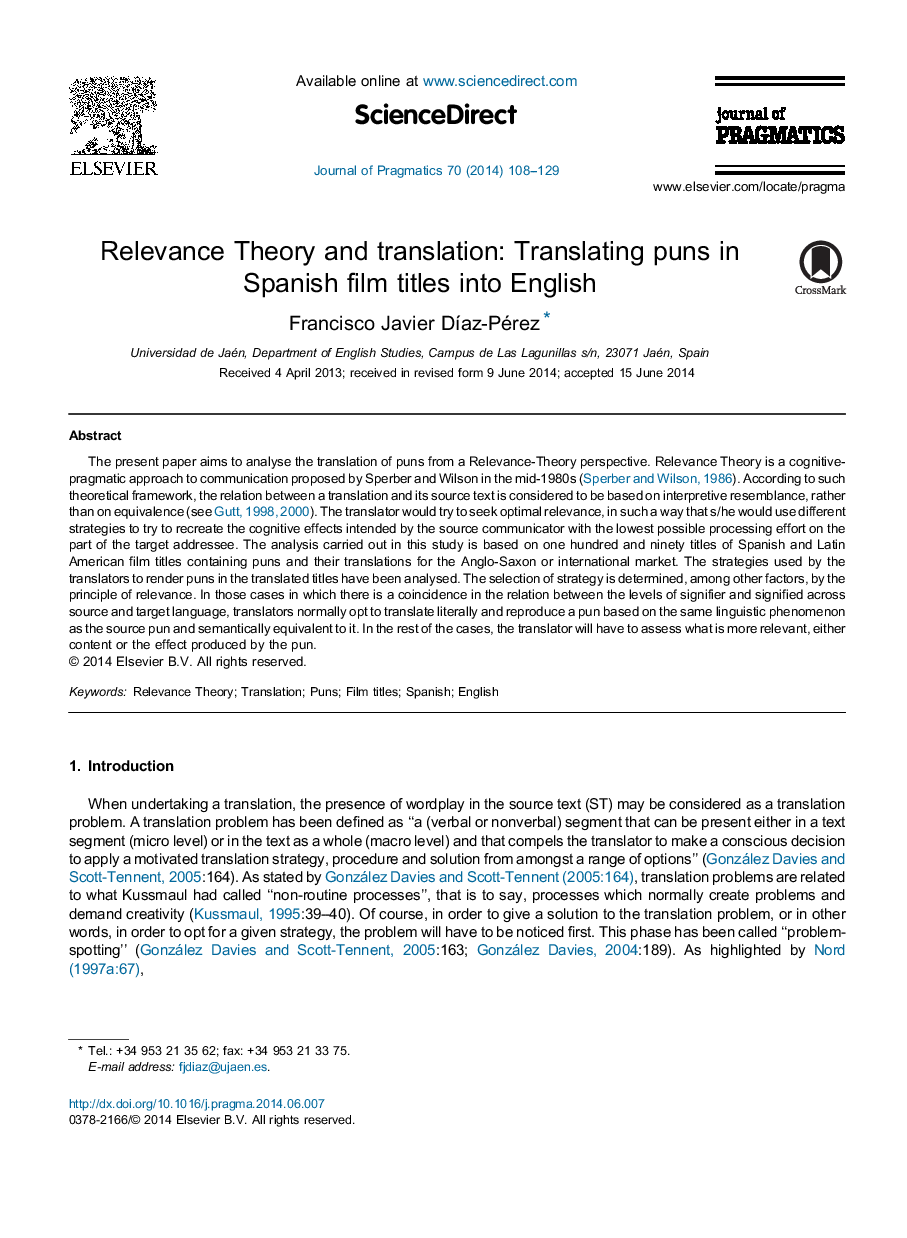| Article ID | Journal | Published Year | Pages | File Type |
|---|---|---|---|---|
| 7298106 | Journal of Pragmatics | 2014 | 22 Pages |
Abstract
The present paper aims to analyse the translation of puns from a Relevance-Theory perspective. Relevance Theory is a cognitive-pragmatic approach to communication proposed by Sperber and Wilson in the mid-1980s (Sperber and Wilson, 1986). According to such theoretical framework, the relation between a translation and its source text is considered to be based on interpretive resemblance, rather than on equivalence (see Gutt, 1998, Gutt, 2000). The translator would try to seek optimal relevance, in such a way that s/he would use different strategies to try to recreate the cognitive effects intended by the source communicator with the lowest possible processing effort on the part of the target addressee. The analysis carried out in this study is based on one hundred and ninety titles of Spanish and Latin American film titles containing puns and their translations for the Anglo-Saxon or international market. The strategies used by the translators to render puns in the translated titles have been analysed. The selection of strategy is determined, among other factors, by the principle of relevance. In those cases in which there is a coincidence in the relation between the levels of signifier and signified across source and target language, translators normally opt to translate literally and reproduce a pun based on the same linguistic phenomenon as the source pun and semantically equivalent to it. In the rest of the cases, the translator will have to assess what is more relevant, either content or the effect produced by the pun.
Related Topics
Social Sciences and Humanities
Arts and Humanities
Language and Linguistics
Authors
Francisco Javier DÃaz-Pérez,
